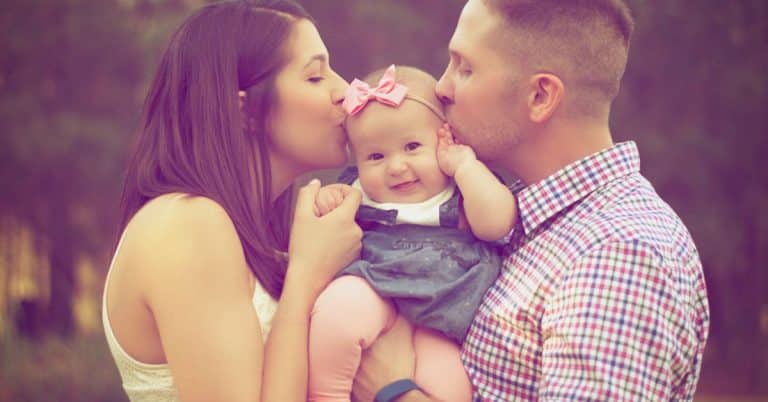
Maintaining the Connection as a Couple for New Parents
“How do we stay connected as a couple when we have a new baby?” It is a valid concern, especially after hearing numerous stories from

Some days, does the thought of living life without your loved one feel unbearable?
Do you feel like everyone else has moved on from the loss except for you?
Has the grieving process left you feeling numb, angry, confused, and deeply alone?
Grief comes and goes in waves—some days the pain may wash over you and you might be flooded with joyful memories of your loved one. Other days you might experience the pain of your loss as freshly as when it happened. Perhaps you find yourself pining for the deceased and ruminating on what could’ve been, telling yourself: I should’ve said “I love you” more, I should’ve paid more attention to them, or I should’ve been more involved in their medical care. You probably wish you had someone to talk to who would support you unconditionally in the midst of your grief.
When you go through a painful loss, you experience two things: mourning and grief. Mourning is what happens on the outside, and grief is what happens on the inside. Although people can see you mourn, they can’t see you grieve. As a result, it’s normal to feel deeply alone in the wake of your loss, as if your feelings are invisible to everyone and there’s no one to bear witness to your pain.
What’s more, you may find it hard to engage with people who didn’t experience the loss the way you did. Although they’ve moved on, you haven’t—your inner world hasn’t forgotten the mark that your loved one left on you.
The truth is that you can never really “get over” a meaningful loss—and that’s okay. You may be moving further away from the date of your loved one’s passing, but that doesn’t mean you have to move further away from them. Therapy can help you live a life that honours the memory of your loved one and allows you to forge a new path without forgetting their impact on you.
In addition to providing support for those who have lost a loved one, Couples Counselling Centre has specialists available to help people dealing with the end of a relationship, the loss of a career, or any other form of grief and loss.
Death is the great equalizer—it’s one of the few things guaranteed in life, and yet we live in a culture that’s deeply afraid of death. We don’t create space for those grieving—we want to come in quickly and cheer them up. We are afraid to say their loved one’s name lest they start crying. We have even coined a term for people struggling to reckon with a loss—“prolonged grief disorder.” Think about it: we have labelled grief a disorder.
If you are grieving, you are not disordered. Your pain is in proportion to the love you had for the person you lost. It is normal and healthy to grieve—doing so is what allows you to heal. Unfortunately, our positivity-obsessed society makes us feel like we should “get over” significant losses. We’re given a week off to grieve, and then we’re supposed to resume life as normal. But in reality, we never really stop grieving. It is a lifelong process that lasts for as long as the deceased’s memory is with us.
After all, your grief is evidence that someone meant the world to you. If you have 10,000 tears to cry, you can’t stop at 9,000. This is why it’s so important to have a safe, nonjudgmental space where we can grieve on our time and in our own way. There is no letting go or moving on from the loss of someone you loved. Your loss is your cherished wound, and therapy can help you heal that wound by making your love more powerful than your pain.
You can’t erase the pain of grief, but you can alleviate suffering. Your life may never be the same again, but with the right help and support, you can be whole again. That’s the goal of therapy. At Couples Counselling Centre, we want to help you get to a place where your tears are tears of love and remembrance rather than tears of guilt, regret, or anger.
Whether you’re dealing with a breakup, pet grief, job loss, or the passing of a loved one, our therapists are here to bear witness to your pain and walk alongside you through the storm of grief. We’ll help you create a new life that honours the memory of the one you lost and allows you to love them in their absence. After all, we don’t stop loving the deceased in their absence (and maybe they don’t stop loving us). We’ll help you nurture the part of you where your loved one lives and find meaning in the face of your loss.

Our approach to grief therapy is client-centered, empathetic, and holistic. We aim to create a supportive environment where you can express your feelings, explore your memories, and work through your pain. We will give you personalized coping skills and tools to help you navigate the ups and downs of grief, utilizing art, music, journaling, mindfulness, and any other creative strategies for processing your emotions.
A huge part of the healing process involves psychoeducation about grief. We want to help you understand the uniqueness of individual grief experiences and timelines. There is no need to rush through the grieving process and there is no shame in grieving longer than expected. Your soul and your psyche already know how to grieve—we want you to get in touch with your soul and psyche so that full healing can take place.
Additionally, our practice often takes a narrative approach to grief therapy. This means exploring and reshaping the narrative of your loss to find meaning in it. You and your therapist will identify and reconstruct personal stories about the deceased, shedding light on the pockets of joy in your memories and integrating the loss of your loved one into your life.
Ultimately, we believe healing doesn’t happen in isolation. You are not meant to tough it out and brave the darkness alone. Our therapists can walk alongside you in your grief, providing comfort and guidance as you journey through this season of loss to the other side of lightness and love.
Grief looks different for each person. Some people begin grieving right after their loved one’s death. Other people may not have the space to grieve right away because they are too busy being strong for others, or they might’ve pushed their grief down because it was too painful to deal with. Regardless of when your loss happened, it is never too late to seek support. Your counsellor will honour your grief experience and help you work through your loss no matter how long ago it took place.
It’s normal to feel apprehensive about discussing your grief. Thankfully, therapy happens on your own timing and at your own comfort level. We are trained professionals and we will approach your grief as delicately and sensitively as possible. The goal is not to make you relive your pain, but to provide a safe place to express your emotions freely and openly.
We believe grief is not something to be fixed—it’s something to be held sacred. That’s why our approach to grief counselling is not centered on forgetting, but on remembering the person you lost with more love than pain. If you desire to connect with your loved one through dreams, rituals, art, and any other creative means, therapy is the place to explore those possibilities.
You can’t heal what you don’t feel, and therapy provides a space to feel all your feelings and focus on working through your grief instead of pushing it down. To begin the healing process, you can use the Book Now page to schedule a free 15-minute video (or phone) consultation.


“How do we stay connected as a couple when we have a new baby?” It is a valid concern, especially after hearing numerous stories from

Spiritual wounds have been described as having experienced harm at the deepest level or core of your being. These wounds can negatively impact your relationship

As Suicide Awareness Month ends, it is crucial that we remember that the conversation about suicide and its impacts does not end here. Suicide has

Proudly serving Individuals, Couples and Families all across Ontario!
Subscribe Now
Subscribe to our newsletter to get tips on how to keep the relationships in your life healthy. We promise we won’t spam you!
Our diverse team of therapists are proud members of






You cannot copy content of this page